Every Episode of Doctor Who Series 2 Ranked From Worst to Best
- Oops!Something went wrong.Please try again later.
- Oops!Something went wrong.Please try again later.
The Ninth Doctor’s run on the show was a short but fantastic one, and his quick exit gave way to David Tennant, the man who would help take the show to heights never before seen in terms of the amount of viewers it drew in week to week. However, his first series in the role ended up being somewhat hit-and-miss – there may be more hits in the end, but when this series misses, it misses big.
We’ve broken it all down and reviewed every episode of Doctor Who Series 2.
Love and Monsters
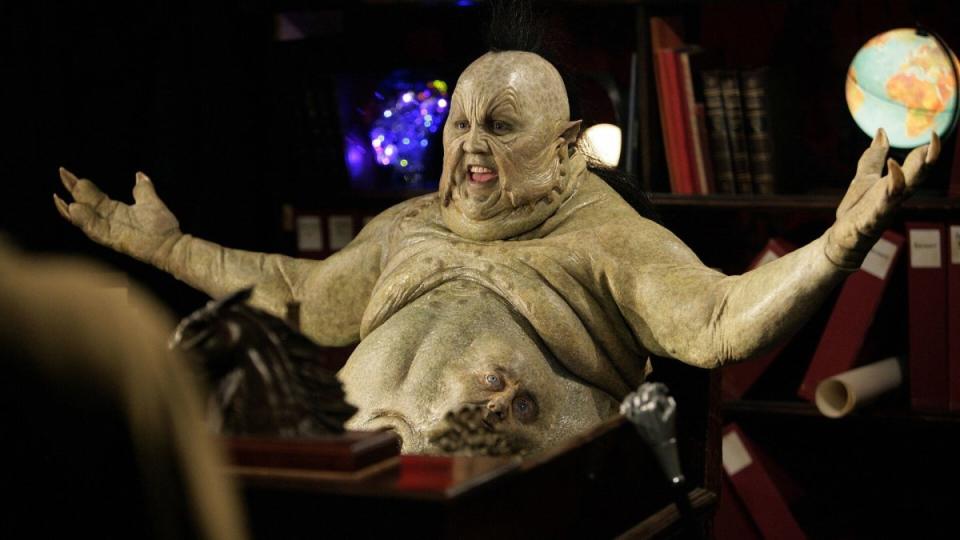
BBC
I talked about this episode on my list of the worst Doctor Who episodes ever, and upon rewatching it, I can safely say that I was not overstating how bad it is. The Asorbalof isn’t the worst idea for a monster – especially given that it was literally designed by a child – but it certainly could’ve looked a lot better if the actual Doctor Who design team were allowed to have a go at it.
It touched on interesting ideas, letting us see Jackie’s life while Rose is away in the TARDIS, but it doesn’t make the most of it – cutting those stories short in favor of a boring chase scene finale. Ultimately it’s an episode that doesn’t have much good stuff to work with, and it squanders what good ideas it stumbles upon.
Fear Her
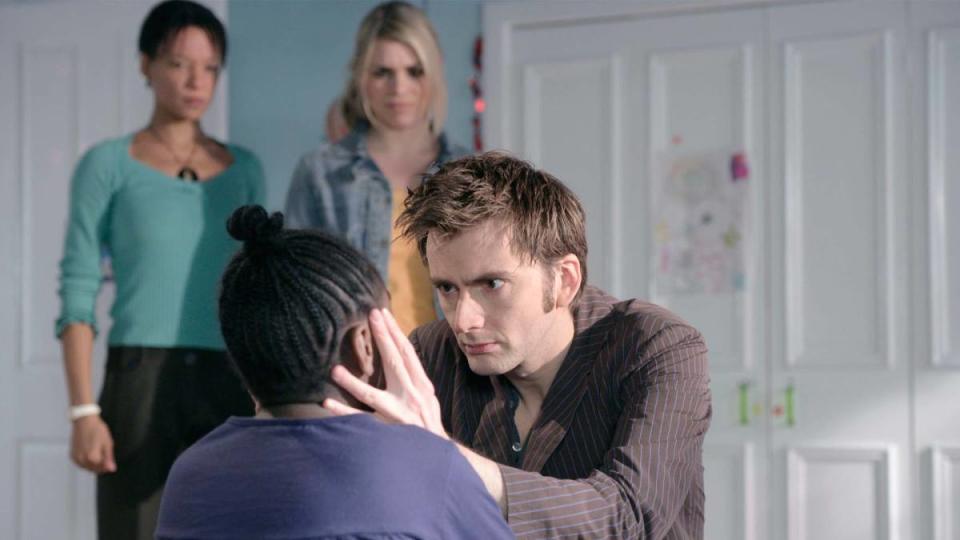
BBC
Fear Her is simply a boring episode. The mystery isn’t overly exciting, there isn’t much in the way of action, and it has to be carried by some mediocre child-acting. This is a creature who can not only trap real things in drawings but can spawn things into reality by drawing them and this concept is never played with – aside from a cheap ball of scribble that doesn’t do anything.
Providing such a cool concept and then doing something this dull with it is frankly insulting.
The Idiot’s Lantern

BBC
I can’t expressly say that this episode is outright bad, but I certainly never get excited about it – and I tend to skip it when I go back and rewatch this era of the show. The visual of people with no faces is nice and creepy, plus I like the concept of The Wire presenting themselves as a classic friendly TV broadcaster, but it all falls apart when she starts screaming “Hungryyyyy!” every five seconds.
On top of that, I think the ending sends completely the wrong message. The idea that a kid who has been treated horribly by an abusive father who has shown no sign of changing his ways has to forgive him simply because “he’s your dad” is something I hate being presented in fiction. You should be allowed to cut abusive people out of your life guilt-free, even if they are family; so many stories insist otherwise and I find it to be a harmful message.
New Earth

BBC
New Earth is pretty much the definition of an episode that’s just fine. It’s not anything remarkable, but it is by no means bad either. 10 and Rose had instant chemistry together and we get to see them play around with that to start before Rose ends up being sidelined for most of the episode.
I can’t say Cassandra was a villain I was dying to see return, but she added a nice bit of complication to the overall threat of the infected people. The problem is that it doesn’t quite capitalize on what it presents us with. I can see an alternate version of this episode that goes full zombie-survival mode with a unique Doctor Who twist, but it doesn’t quite go far enough down that rabbit hole – the elevator shaft scene is great though.
Tooth and Claw

BBC
Where New Earth doesn’t do enough with the zombie concept, Tooth and Claw knows exactly how to make the most of the werewolf – which is to say, it tears around the place ripping people to shreds (off camera, this show is still PG-rated).
The slow build to the wolf being unleashed is a lot of fun as we fill it with meeting Queen Victoria, and once all hell breaks loose it’s all action. Giving the wolf a weakness that doesn’t kill it, but just wards it off was a good way to break up the action, and gives us some tense scenes while the wolf works out ways around it. It’s not especially complex or clever, but it’s a thrilling action-focused episode.
Rise of the Cybermen & The Age of Steel

BBC
The Cybermen don’t have the best track record in modern Doctor Who. They often end up playing second fiddle to other villains, and when they have to hold an episode on their own, they rarely succeed. However, this two-parter which saw their big introduction in the modern series might be the best they’ve ever been presented.
The scenes where they go on the attack make them seem truly unstoppable, and it plays into the creepy side of upgrading and removing human emotions more than most other Cyberman stories. Plus, the parallel world aspect of the story gives us a fun secondary cast to play with – most of whom return later in the series.
Army of Ghosts & Doomsday
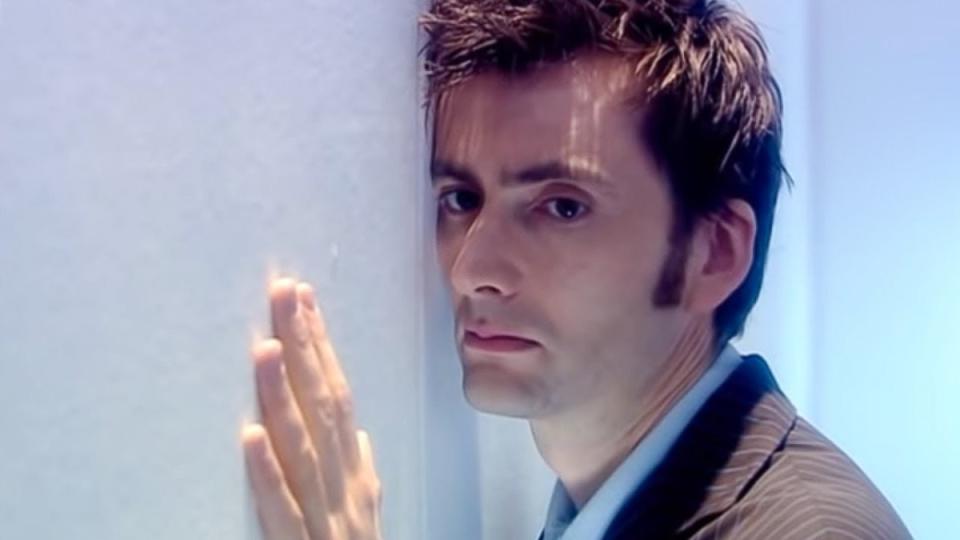
BBC
This finale is a great example of just how different each episode in a two-parter story can feel. Army of Ghosts is a slow-building mystery, as we’re first introduced to the ghosts and then spend time getting familiar with Torchwood – working out they’re friend or foe. Then the Cybermen come out of the breach and the Daleks come out of the sphere and it leads to a fantastic cliffhanger.
In the second part, we spend a bit of time standing around chatting to work out what’s going on with the Daleks – and so they can bicker with the Cybermen in a hilarious scene – and then it’s all action from there on out. We get to watch our characters run around all corners of Torchwood while the Doctor slowly formulates a plan.
Then it all ends in heartbreak. Regardless of how you felt about Rose as a character, this is one of the most perfectly plotted companion exits the show has ever seen. The imagery of the two standing in the same spot in parallel universes while the brilliant music plays is bound to bring tears.
School Reunion

BBC
This was the first time that modern Who brought back a classic companion, and while it would happen several more times in the years following, it never felt like more of a big deal than in this episode. As a kid watching this I had no idea who Sarah Jane Smith was, but the episode made me immediately like her, and I wanted to see her travels with the Doctor.
It lets us play with the Doctor and Rose’s relationship too, as a massive insecurity of hers is suddenly exposed, and I like how it resolves in both her and Sarah Jane realizing how ridiculous it is to be fighting over the Doctor.
As for the Krillitanes, they’re never especially threatening, but they serve as a good monster for some solid action. Plus, Anthony Head’s performance as the leader is incredible, and I wish he’d been cast as a more important villain that let him shine – could you imagine him playing an incarnation of The Master? Chilling.
Girl in the Fireplace
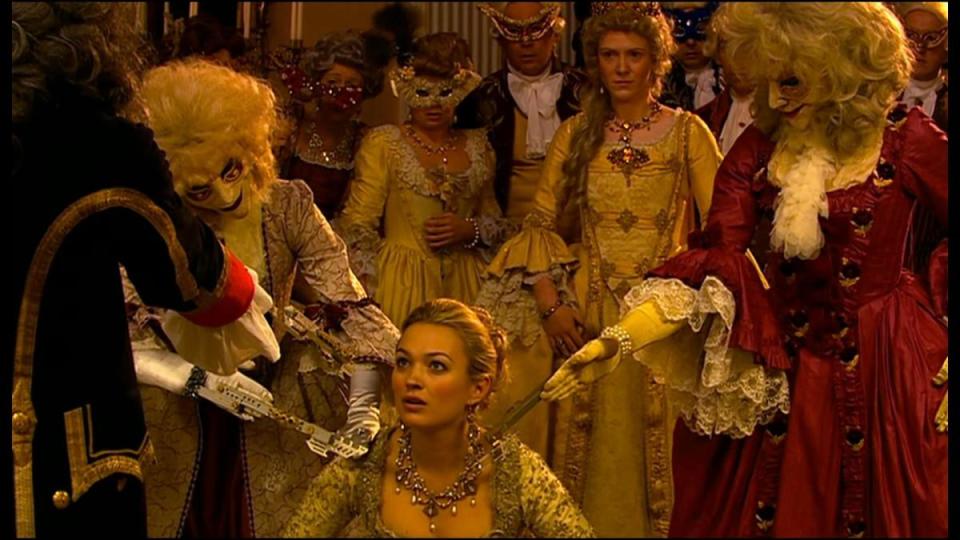
BBC
While this is technically a historical figure episode, it doesn’t feel like it thanks to Moffat pulling a great twist on the format. The Doctor’s ability to pop in and out of people’s lives is a great concept that can never be fully explored because of the nature of the show, but this episode condolences it into one story, as he can step between the time windows on this ship and enter Renette’s life at any point he pleases.
It’s an action-packed episode with a genius mystery, as well as plenty of heart. It really has it all, as it’s even a pretty funny episode:
“What’s a horse doing on a spaceship?”
“Mickey, what’s pre-revolutionary France doing on a spaceship? Get a little perspective.”
You may not think of this as a comedic episode, but you’d be hard-pressed to find an exchange in this show that makes me laugh more than that.
The Impossible Planet & The Satan Pit
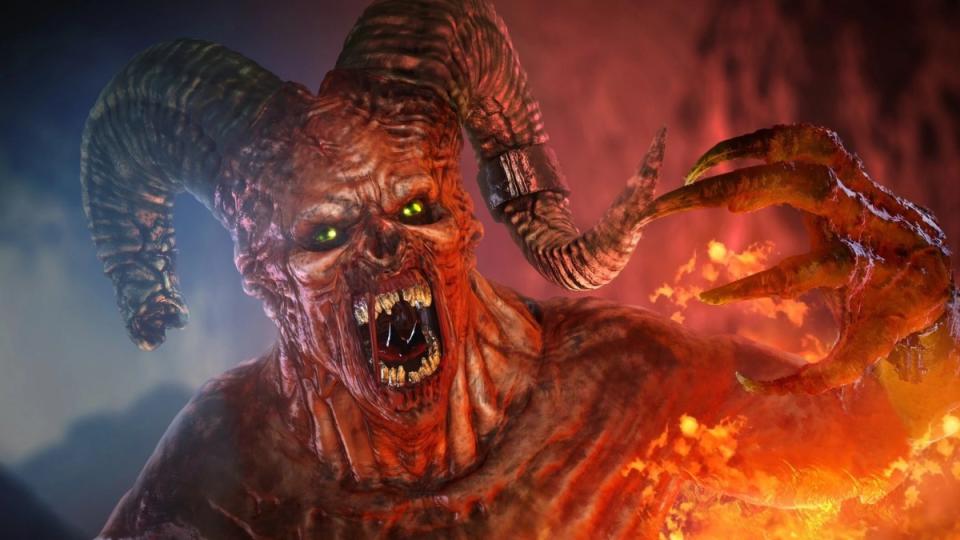
BBC
The Impossible Planet is an incredibly gripping episode as we slowly unravel the mysteries of this planet orbiting a black hole. Then, while the very existence of our location is being questioned, we start to see strange things slowly creeping into the episode. It’s masterfully paced to keep you guessing right up to the end. Even when you think you’re going to get answers more questions just arise leading into the second part.
As expected, things are much more action-focused in the second half, but it still creates time for the mysteries to continue their slow build. Even though you’ll have a good idea of what’s going on at this point, the narrative still manages to make you second guess your assumptions, even down to when it’s all over. Even the Doctor can only turn around and say “I think we beat it” when asked what he thinks the creature truly was.
It forces you to think while serving you plenty of tense scenes involving the Ood hunting down the main cast, keeping you guessing as to who’s actually going to survive.

